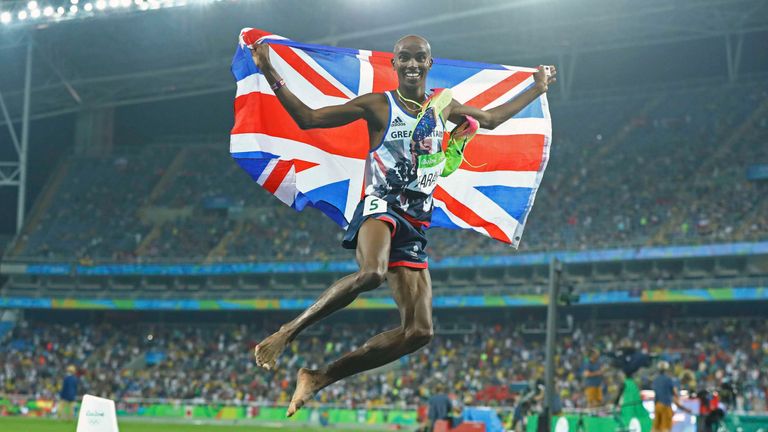Sky Views: Theresa May is selling our Olympic heroes short

Thursday 20 October 2016 16:03, UK
Paul Kelso, Sports Correspondent
Britain's Olympic and Paralympic athletes begin a two-day lap of honour in Manchester today, where the only thing more predictable than the iffy weather forecast is that huge crowds will wave them on their way.
A quarter of a million people are predicted to turn out as 350 members of Team GB and Paralympics GB take their bow in the north west. On Tuesday it's Trafalgar Square and a reception at Buckingham Palace with the Queen.
The acclaim will be warm and genuine. British athletes exceeded expectations in Brazil and provided welcome light relief in the summer of Brexit, and a year of often anguished news.
In a divided nation, waving the Union Flag at beaming champions is rare opportunity for an uncontentious expression of patriotism.
Britain's place in the world has seldom been more keenly debated, but only in the Olympic medal table is it ahead of China and Germany, and behind only the USA.
No wonder the Prime Minister will be there to address the team at Manchester Town Hall, and hoping that a little of the glory will reflect favourably on her.
But if the golden summer of 2016 is to leave more than a warm glow, Theresa May needs to demonstrate that her government's faith in sport goes beyond photo opportunities and an almost Soviet-style pursuit of glory.
Medals alone do not make a sporting superpower or engrain a physical culture. To do that, Britain is going to have to get off its collective backside and start doing, rather than just watching.
Team GB has proved that it can win the Olympic game. Investment worth £4m a medal has delivered a generation of unprecedented success.
Turning inspiration into action has proved far harder. Despite three successive Games of improved results, one of them hosted in the London with a £9bn promise to "Inspire a Generation", participation has at best stalled.
A new strategy has been promised by sports minister Tracey Crouch, whose faith for the policy benefits of sport, from health to crime reduction, is encouraging.
The same has not always applied to her colleagues, notably in education, the most fertile ground of all for growing a genuine culture of physical activity.
One of Michael Gove's gifts to the nation before he helped deliver Brexit came when, as education secretary, he abandoned a school sports policy that was delivering genuine results.
Privately-schooled athletes still outweigh their state-educated peers in Team GB, but scores of those that came through the state sector owe their start to a system Mr Gove unceremoniously ditched.
It was a decision every bit as ideological as the Labour Party's 1980s aversion to competition. Claiming to offer schools choice, a successful compulsory system was dismantled. Only now, after a post-2012 U-turn, is it close to being rebuilt.
Add the cumulative effect of sports facilities lost to local authority austerity cuts, and Britain's claims to sporting glory looks less lustrous.
Extending opportunities to exercise, participate and play sport for its own sake rather than the remote prospect of glory should be a national priority.
Just turning up every four years to wave sells the champions and the country short.
Sky Views is a new series of comment pieces by Paste BN editors and correspondents, published every weekday morning.
Previously on Paste BN: Hannah Thomas-Peter: Who are Trump's 'deplorables'?




